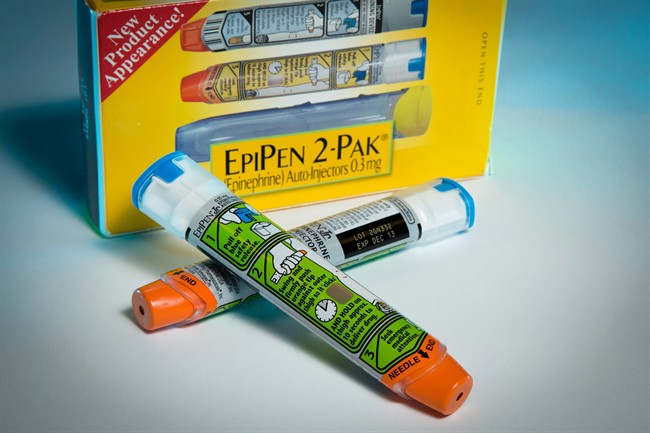Navigating the school system with a child who has food allergies can be daunting. But these days, schools are well-prepared to deal with new students and new restrictions on what can and can’t be consumed in the classroom.

Winnipeg allergist and immunologist Dr. Thomas Gerstner estimates that approximately half a million Canadian children 18 and under have been diagnosed with food allergies.
“The prevalence of food allergies in kids has been increasing in recent decades. Estimates vary about a doubling effect in the mid-90s, even to the late 2000s of peanut allergy, for example.” Dr. Gerstner said.
“Out of a typical classroom of 25 to 30 kids, about one or two kids from each classroom will have some form of food allergy, so it’s a very common problem.
“On the good side of that is that schools have now become much more accustomed to these issues and much more prepared to deal with them.”
Dr. Gerstner’s son has a peanut allergy. He said there is hard and fast evidence to support his notion that banning certain food types from school is not the answer — despite many schools trying.
“Years ago, they tried to set up bans in school for certain food allergens — especially peanuts,” said Gerstner. Studies showed that schools who had bans had no reduction in peanut reactions, and some had an increase, he said.
“People might become a bit more complacent and have a false sense of security, because, well, if peanuts aren’t allowed, then I’m not going to encounter them, I don’t have to be careful.”
- Canadian man dies during Texas Ironman event. His widow wants answers as to why
- On the ‘frontline’: Toronto-area residents hiring security firms to fight auto theft
- Honda’s $15B Ontario EV plant marks ‘historic day,’ Trudeau says
- Canadians more likely to eat food past best-before date. What are the risks?
READ MORE: Three tips to make back-to-school easier on kids and parents from a Winnipeg expert
What has worked is making schools more aware of allergies and sending notices home about foods that shouldn’t be brought in, rather than having an outright ban on certain items, he said.
He also said designating some tables as being safe for children with food allergies has proved to reduce reactions in schools.
“It’s tough to cede control when you have been used to controlling the child’s food environment for the last several years,” Dr. Gerstner said.
To manage that, parents should make a plan should a child have a reaction, and meet with schools to provide the plan and go over it.
“Really, take the mystery out of the experience. The problem of ceding control can be helped by knowing what’s going on in your school, in your child’s classroom and knowing what the plan is.”
Decades ago, children with allergies were more isolated, but Dr. Gerstner feels it’s a very realistic goal to achieve a sense of normalcy for kids with food allergies.
“Not only is it possible, it should be strived for at all times. Kids have a right to feel safe in their learning environment, they have a right to full participation as much as possible, and I think it’s up to the teachers and the school to set up practices that account for that,” he said.
Things like minimizing the focus on food at parties or its role with arts and crafts can help make it possible for all children to participate in activities and feel included.
“Make sure that buses, for example, are food free, so that that part doesn’t have to be worried about,” Dr. Gerstner said. “You want to exclude the food as much as possible and create a level playing field so that these kids feel fully integrated and part of what’s going on.”
But while the tendency for parents has often been to protect their children as much as possible, instilling a sense of independence and responsibility in children will be more beneficial in the long run.
“It’s really important for parents to know that creating an independent child who’s learning look out for themselves in the long run is the safest approach possible,” Dr. Gerstner said.
“You want to create a child who’s able to look for and understand when (they should) and should not be eating, ask questions, read labels, ensure they have their EpiPen with them before they eat.”
Resources for dealing with allergies in children
Children’s Hospital Allergy and Asthma Education Center: 685 William Avenue, 204-787-2551
Food Allergy Canada: info@foodallergycanada.ca, 1-866-785-5660
Canadian Society of Allergy and Clinical Immunology: 1-613-986-5869





Comments